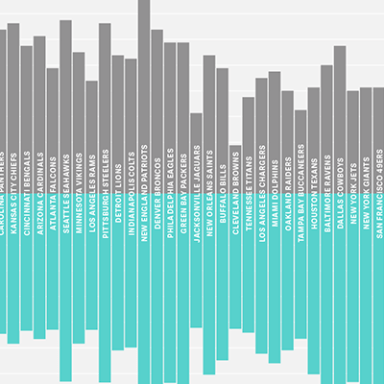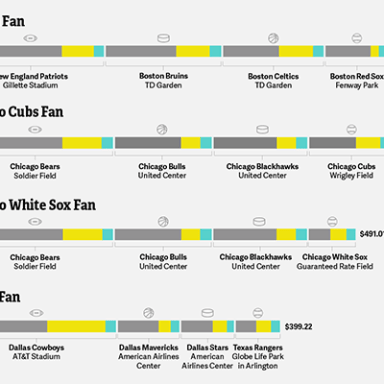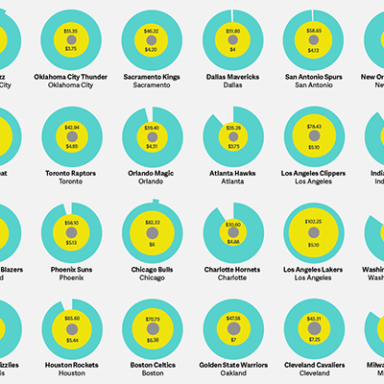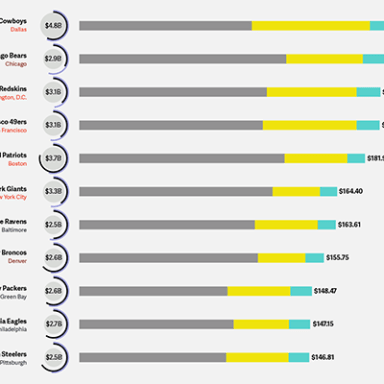
Cheer Smarter: Using Advanced Metrics to Analyze the Cost of Being a Sports Fan
The significance of a sports team varies for every person. Childhood memories, historic rivalries, and the underdog mentality make allegiance to a team personal and emotional.
But allegiance also costs money: Americans spend about $56 billion on sporting events each year. Almost 60 million people in the United States and Canada participate in fantasy sports leagues, investing an average of more than $500 a year in the competition.
So, how can fans reckon their emotional attachment with the financial decision to support a team? Amit Bhattacharyya, datascience@berkeley professor, said data is the answer.
“Sports just has a steady stream of statistics and numbers and ways to quantify what’s going on,” he said.
It provides context: How many times has something seemingly impossible happened? How often does a team win under certain circumstances? And why are some fans paying a much higher premium to go to a game?
“So why do [we] like data? It’s because it feels like it can help take the emotion out of some of these things.”
How Much Do Sports Fans Spend?
Bhattacharyya, who is also the head of data science at Vox Media, said data isn’t usually the appeal of sports.
“People are just passionate about sports, period. Even without the data, right?” he said. “People love to have something to root for.” But how much does it cost to cheer?
To answer that question, datascience@berkeley compared the cost to attend a game for every team in the MLB, NFL, NBA, and NHL with potential proxies such as team value, winning percentage over time, and the cost of living in the area.

Read the text-only version of the “The Cost of a Game” graphic.
Jump to:
BACK TO TOP
COST OF A GAME
BEST DEAL
COST BY CITY
MOST FUN
Which Sports Team is the Best Deal?
A $200 price tag to see a team play may seem hefty, especially when the measurement of a team’s success — a win — is never guaranteed. For teams that perform poorly throughout the season, that financial uncertainty grows.
And while most fans don’t choose their team based solely on success, the price of attendance for some teams begs the question: Are fans always getting what they pay for?
To find out, datascience@berkeley ranked teams on cost and wins, with the theory that the two should match closely. Teams whose cost and win rankings differ represent either a good or bad deal. But Bhattacharyya shares some hope for fans of last-ranked teams: In a league like the NFL, the underdog still wins about a third of the time.
“Even if your team is horrible, there’s a pretty good chance of winning and it’s not as close to zero as you might think,” he said.

Read the text-only version of the “Which Team is the Best Deal in Sports?” graphic.
Jump to:
BACK TO TOP
COST OF A GAME
BEST DEAL
COST BY CITY
MOST FUN
Which City’s Fans Spend the Most on Sports?
Proximity to a team is an obvious reason to become a fan, but proximity to a metro area of people to cheer with is a close second. Bhattacharyya said it speaks to the feeling of community among sports fans — root for a team together, root against one together.
“It’s not like you really hate the people from Boston if you’re from New York,” he said. “But it is nice to hate the Red Sox.”
Where in the United States is the cost of that community lowest? To find out, datascience@berkeley compared all cities with one team from each league.
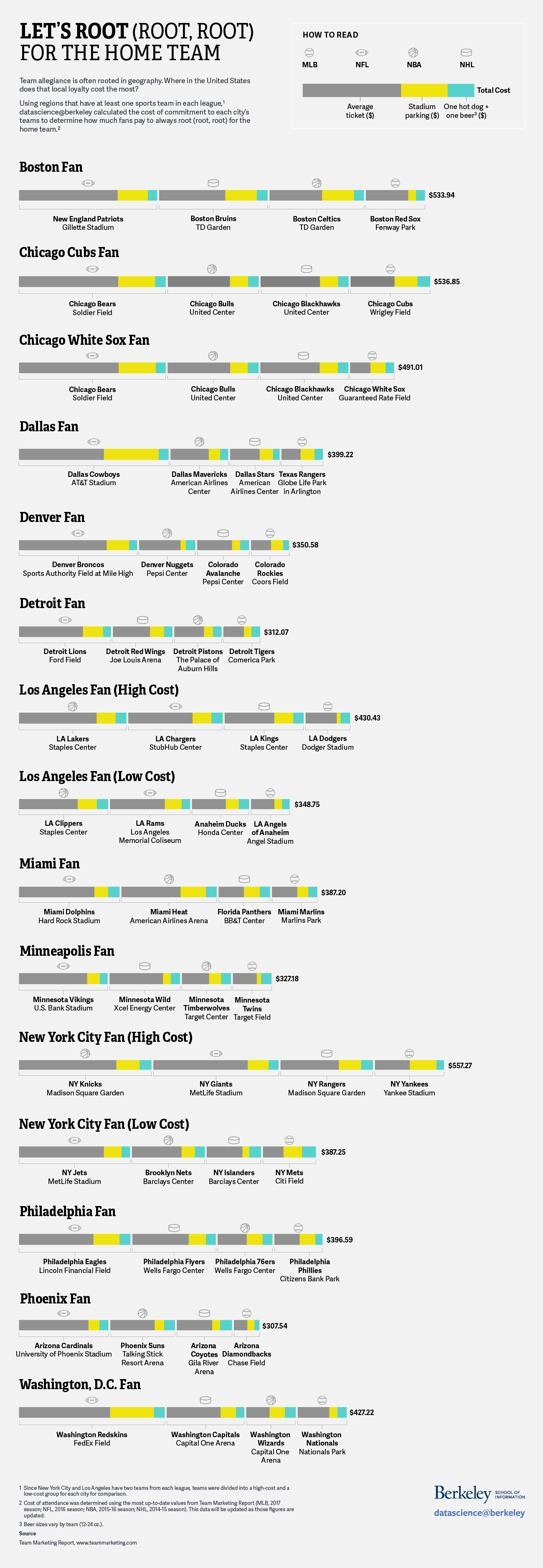
Read the text-only version of the “Let’s Root (Root, Root) for the Home Team” graphic.
Jump to:
BACK TO TOP
COST OF A GAME
BEST DEAL
COST BY CITY
MOST FUN
Which Sports Team is the Most Fun for Fans?
On game day though, it’s not always a win that makes the fan experience enjoyable.
“If you feel like you can go and hang out with people that are like-minded and root for a team with them, it doesn’t even matter if your team is terrible,” Bhattacharyya said.
So, what makes a fun day at the stadium if team success isn’t required? To find where fans aren’t necessarily paying for championships, but for a fun time, datascience@berkeley analyzed every team in the major leagues.
Bhattacharyya points out that data can really only affect fans’ financial choices to a degree. At some point, no amount of data will make a difference.
“I would pay an absurd amount of money to go see Cal in the Rose Bowl,” he said. “The amount of money that I would pay is probably not quantifiable in any kind of normal model. But would I bet on my team to get to the Rose Bowl? Probably not.”

Read the text-only version of the “Which Team is the Best Deal in Sports?” graphic.
Jump to:
BACK TO TOP
COST OF A GAME
BEST DEAL
COST BY CITY
MOST FUN
UC Berkeley’s Online Master’s in Data Science
Request information to learn how you can advance your data science career
with UC Berkeley’s online Master of Information and Data Science


